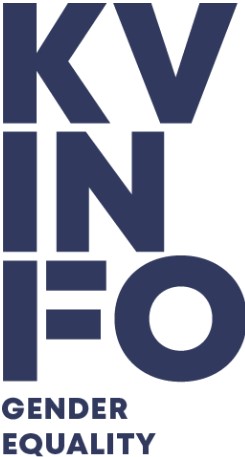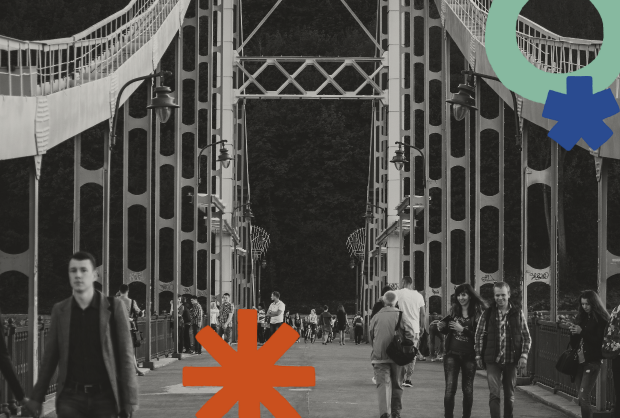During a war, traditional gender roles are often reinforced: men take on the role of protector as they go to the front and defend society against the enemy. Women are victimised as the ones to look after when they stay at home and take care of the family – or flee.
Yet, so far, there is no evidence that Russia’s war against Ukraine is causing Ukrainians to take a more traditional view of the roles of men and women.
This is according to a new study conducted by the research and analysis institute Info Sapiens for the NGO Insight in Ukraine in November 2022 – nine months after the war began.
Info Sapiens asked a representative sample of the adult Ukrainian population about a wide range of statements on gender stereotypes. The research and analysis institute then compared the responses to a similar survey from 2018, and in many areas, there has been a significant shift away from many of the gender stereotypes.
In 2022, for example, eight percent of Ukrainians said they agree or strongly agree that a woman should always obey her husband, compared to 29 percent in 2018.
The same trend applies to views on domestic chores. In 2018, 43% of respondents agreed or strongly agreed that women should always do all the housework and be a good housewife. In November 2022, it was only 2 percent.
Women’s contribution to the war matters
The survey responses also suggest that perceptions of men’s role in the home have become more equal over the past four years. For example, far fewer people in 2022 support the idea that the man should be the head of the family no matter what, compared to 2018.
About the study
The study includes in-depth interviews and a nationally representative survey of 1,008 respondents from all regions controlled by the Government of Ukraine using a random selection of mobile phone numbers.
Read the full report here.
Moreover, only about one in five, i.e., 21 percent of Ukrainians in 2022 agree or strongly agree that the husband is fully responsible for securing the family income. This view was held by well over half – 60 percent – in 2018.
This development should be seen, in particular, as an expression of the general development in the gender equality debate, which was also underway before the war. This is the conclusion of the Info Sapiens study.
However, it is also worth noting that in many areas the development is so evident despite the war, according to one of the researchers behind the study, sociology professor Olena Strelnyk.
“In times of war, there is often a decline in gender equality. However, according to the results of the survey, we do not observe an increase in traditional expectations of gender roles. I believe this is a consequence of the significant progress of Ukrainian society in terms of gender equality in recent years, as well as the visibility of women’s contribution to the war in the public sphere, both in the civil and military spheres,” she said.
Gender roles merge
While the war reinforces some traditional gender roles, it also disrupts others, as Olena Strelnyk points out.
While many men are at war, women are fulfilling their functions and, in general, women often take a more active role than they did before the war. In the armed forces, as volunteers, in the workplace and at home.
The many interviews in the study also show that the role that women fill in society by “staying behind” with their families is far from being perceived as a passive victim role in Ukraine. For many, it contributes to the understanding of women as being more proactive.
In the survey, a woman from Kyiv describes it as follows:
“Most women started to show more masculine traits as defenders. Especially if there are children, they think about the children first and foremost, rather than themselves, including where is the shelter, how can we get food in an emergency, where can we find protection, what are the safety rules, that kind of thing.”
Another interviewee highlights the importance of the fact that many women have joined the army or volunteered:
“At the same time, gender roles are becoming both more fluid and reinforced. Among civilians, if you are a man, you have to join the army; if you are a woman, you have to flee. Whereas in the army, these gender roles are completely blurred, because it doesn’t matter who you are; you are first and foremost a soldier.” he says.
War may still cause a setback for gender equality
Now, the thing about changes in norms and understandings of gender roles is that they happen over a long period of time. Therefore, it is too early to conclude that the war will not have any negative consequences for gender equality and the perception of gender roles in Ukraine.
On the other hand, the study underlines that while relatively few people today agree with gender stereotypes about gender roles in the home, the situation is different when it comes to politics and business: One in three Ukrainians still agree that men are better political leaders than women, and one in four agree that men are better than women at managing business.
KVINFO and insight
Since January 2022, KVINFO has collaborated with the organisation Insight to strengthen gender equality in Ukraine as a project under the Ministry of Foreign Affairs of Denmark’s Neighbourhood Programme.
Insight is Ukraine’s leading LGBT+ organisation, including a comprehensive counselling service.
The project aims to strengthen women’s participation in politics, leadership, and social and economic community relations.
Through this collaboration, KVINFO and Insight seek to challenge limiting gender norms, raise awareness of economic equality through campaigns and knowledge production, and work to support victims of gender-based violence.
The project began before the war between Russia and Ukraine started, but has only become more relevant since.
In the project, KVINFO also works together with the organisation Women’s Perspectives and Ukrainian Women’s Fund in Ukraine and in Georgia with Union Sapari, Women’s Information Centre and Women’s Fund Georgia.
In this context, some interviewees are also concerned that the war will reinforce this perception because it has a negative impact on women’s political participation: normally, men occupy far more space in the military-civilian administration than in politics in Ukraine, and the presence of female political leaders are therefore also negligible in the TV news during the war.
On the other hand, the qualitative part of the study shows that the warhas also brought with it a number of gender stereotypical expectations. For example, several interviewees highlight clear expectations that a man should fight, and several talk about discrimination against those who are not at war. For example, in the labour market and in the allocation of housing.
Therefore, in-depth sociological studies are needed over the next few years to monitor how these shifts in Ukrainian society will affect gender stereotypes in the long term, the researchers conclude.
More gender equality – or men as kings?
Ukrainians’ expectations for the future are also divided.
The many interviews in the study mostly paint a picture of the war as an open window where many things are in turmoil and developments can go in either direction.
“I think there will be a part of those returning from the war who will have rethought their values and will start to appreciate their family more. I think that quite a lot of the responsibility for raising children and spending time with them, at least, will be transferred to the male role,” says one of the women interviewed in the study.
The majority of interviewees expect, like her, that the war will end up increasing gender equality in Ukraine.
Many say they expect Ukraine to win the war and that this will help equality because it will mean more integration with the EU and a rejection of the Soviet legacy.
Others point out that the role of women in the armed forces and volunteer forces during the war will give a boost to gender equality afterwards.
“I believe in our victory and victory always has a positive effect on society. It helps to make more informed decisions, for example, on gender equality, the role of women in politics, etc. I think that after the war, the role of women will be greater, more active, on an equal footing with men,” says a man in the study.
However, some are worried about the opposite: they fear that the war will reinforce inequality between men and women because many men will return from the war with the expectation of dominating, including in the private sphere.
“It may be that when men return from the army, they are… they are the kings of Ukraine, they are the most important. When they return from the army with some victories, they have such an ego, an arrogance about them that they will look for a woman who will only be subordinate to them. Lie under them and be quiet,” as another woman said in the survey.
More gender equality needed – also in times of war
Regardless of the hopes for the future, the majority of respondents in the study also believe that more changes are needed in rights and opportunities for men and women in Ukraine in general. For example, in the fight against discrimination or legislation in the fields of employment, education and violence.
At the same time, many respondents point out that there are several things that need to be done to the very way the war and the army are organised to avoid wartime becoming a setback for gender equality.
Most respondents point to solutions, such as moving to a contract army, creating transparent registers in recruitment offices and generally facilitating women’s access to the armed forces. Several participants also mention that it is important to improve the conditions and medical knowledge of transgender people on the frontline, so that they can participate in the defence of their country on an equal footing with everyone else.


